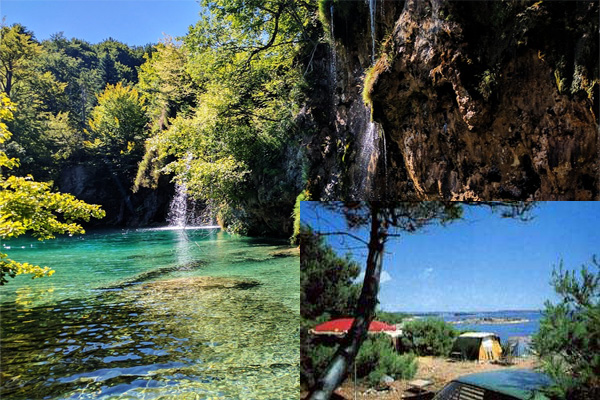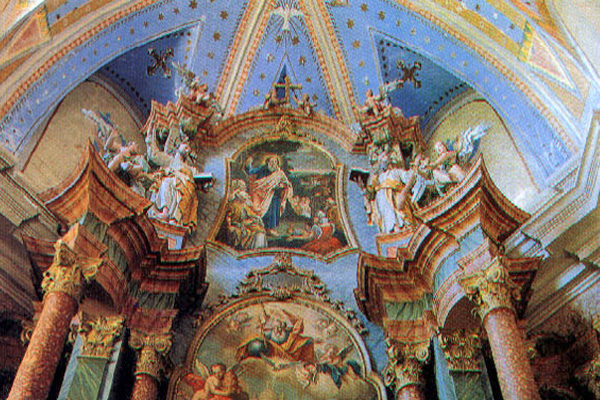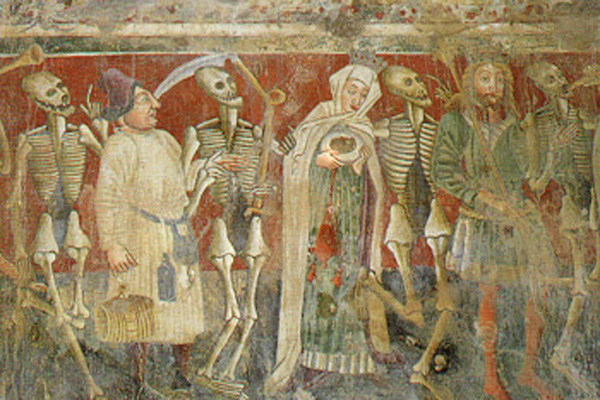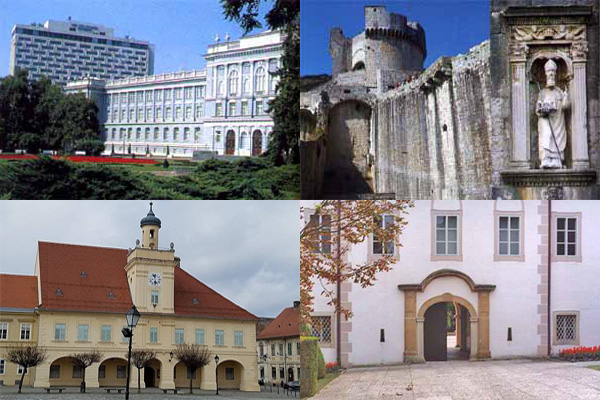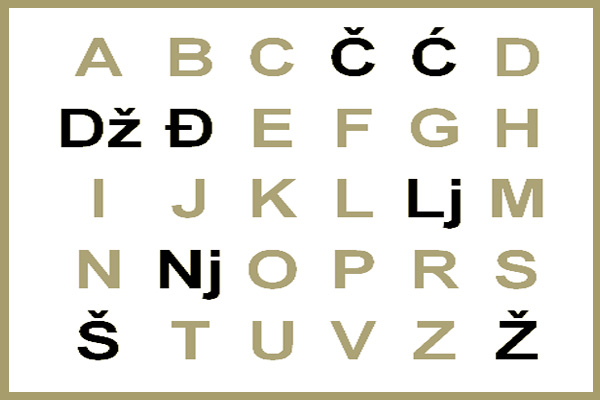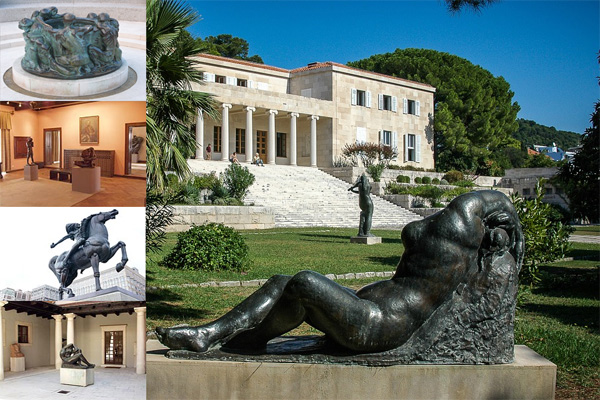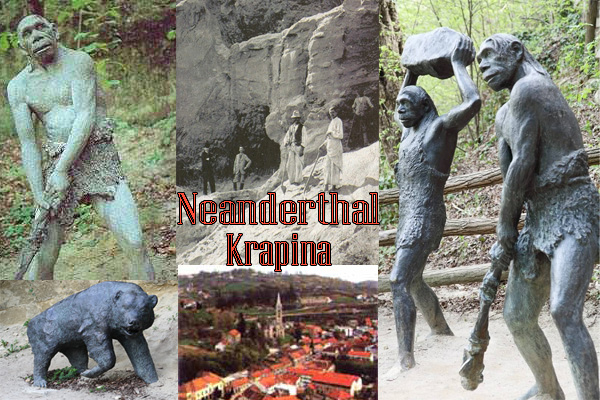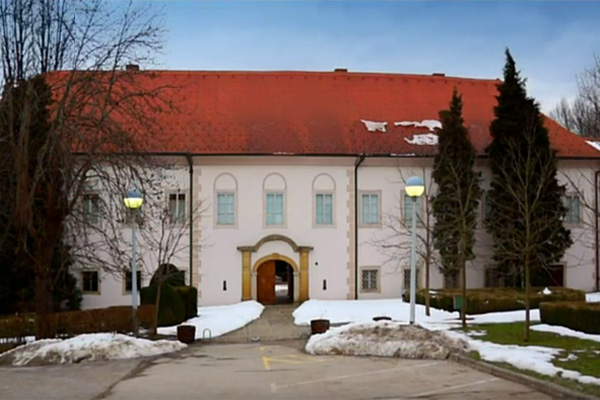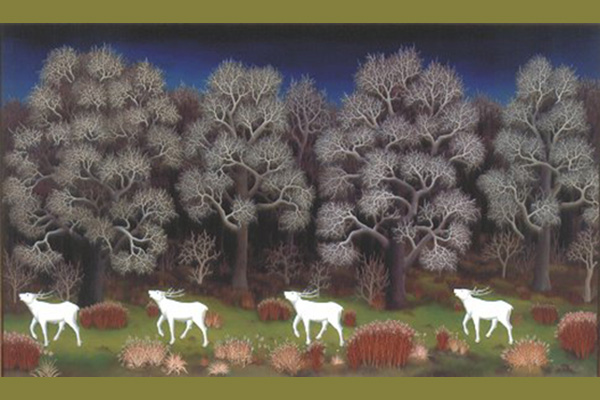Travel Croatia
Discover Croatia
RomWell Travel Advisory
Croatia Camping Info
Those who wish to get in closer contact with nature and unique Croatian Parks & Natural Resources will prefer camping to the hotels. Gorgeous Croatian landscapes, over thousand beautiful Croatian Islands, clean and well-kept beaches, beautiful bays and peninsulas, all making Croatia magnificent and idyllic place to enjoy. Croatia can be really proud of the standards of its campsites, which is reflected in numerous prestigious international awards and acknowledgments.
Some of the numerous campsites are for naturists. Croatia is known for its naturist tradition, which began to appear quite early on along the Croatian coast. There are numerous naturist camps altogether, most in Istria, some in Kvarner and Dalmatia. They are well equipped with all modern conveniences, recognised above all for their high quality accommodation and service. They are known for the beauty of the landscape which surrounds them, and also for their safety. Many of them are visited every year by their regular customers. Few campsites in Europe attract as many guests.
Croatia is a country where camps are incorporated in the preserved and exceptionally beautiful nature and most of them are situated right by the sea. The camps account for about 25% of the overall accommodation capacities in Croatia.
Every camper will find exactly what they want in Croatia: from the high-end modern camping parks, with their various facilities, where you can rent a superb mobile home or other accommodation, all the way to little places, which offer a stay in the garden or courtyard of a family run campsite, plus there is also Robinson Crusoe style camping and even glamping.
As far as availability goes in Croatia, the largest number of 'mini campsites' are in Dalmatia, in the Zadar and Dubrovnik regions, and on some islands. Some are also found in inland Croatia, along rivers or beside lakes and not far from the major Croatian tourist destinations. In continental Croatia, such campsites are becoming more numerous each year. They are an ideal holiday base for sightseeing tours around the inland regions and discovering the charms of the Croatian interior. Click on the link to download Camping Brochure (pdf format).
Important Note: In Croatia it is a punishable offence to camp in open spaces outside of registered campsites or parking lots for caravans and camper-vans.
General Info
Water: Tap water is drinkable in all parts of Croatia!
Croatian Electricity: 220 V, 50 Hz
Croatian Money: Croatian Kuna (HRK) is the official currency of Croatia, and (1 kuna = 100 lipa). Kuna is also the best currency to use in Croatia. Euros is unofficially used in some situations, making it the best foreign currency to carry with you if you don't have Croatian Kunas on you.
Credit Cards: The majority of establishments and ATMs in Croatia will accept credit cards such as Visa, MasterCard, American Express and Diners, etc.
Foreign Money: Foreign currency is exchanged in the banks, exchange offices, travel agencies, hotels, camps, marinas. Cheques are cashed in the banks.
Phone: International dialling code for Croatia is 385. Public phones or payphones appear pretty much everywhere in Croatia. Phone cards, which are sold at post offices and newspaper kiosks, are used for all public telephones and come in various denominations. Calls to foreign countries can be made directly from any telephone. Click Phones in Croatia link to access more information about phones, sim cards and important local phone numbers.
Customs: Professional and technical equipment of a high value should be reported at the border. Click on Customs Info link to access important information for travelers to Croatia .
Croatian Public Holidays: 1 January - New Year’s Day, 6 January - Epiphany, Easter Sunday & Easter Monday, 1 May - Labour Day, 22 June - Anti-Fascist Resistance Day, 25 June - Statehood Day, 5 August - Victory Day and National Thanksgiving Day, 15 August - Assumption Day, 8 October - Independence Day, 1 November - All Saints’ Day, 18 November - Victory and Homeland Thanksgiving Day and Day of Croatian Defenders Remembrance Day for the victims of the Homeland War and Remembrance Day for the victims of Vukovar and Škabrnja, 25 December - Christmas Day, 26 December – St. Stephen’s Day
Shopping: Most of the shops are open from 8 a.m till 8 p.m on workdays, and till 2 p.m. on Saturdays and Sundays; during the season, even longer.
Post Offices: Post offices are open 7 a.m. to 7 p.m. on working days; from 7 a.m. to 4 p.m. in smaller towns and villages, and some are working split shifts. In major cities and in tourist resorts, post offices on duty are open till 9 p.m. on Saturdays and Sundays.
Petrol Stations: Petrol stations in larger cities and on motorways are open 24 hours a day. Petrol stations sell Eurosuper 95, Super 95, Super 98, Super plus 98, Euro Diesel and Diesel, and gas (LPG) is also available in major cities, and at petrol stations on motorways. For information on fuel prices and a list of places selling LPG gas go to: www.ina.hr; www.hak.hr; www.tifon.hr; and www.crodux-derivati.hr
Public Services & Related Offices: Public services and offices work from 8 a.m. to 4 p.m from Monday to Friday.
Croatian Environment Protection: Protection of biodiversity is in accordance with the valid EU regulations. As regards bathing, the sea at the Croatian Adriatic is of high quality according to EU criteria.
In case of an accident or incident at sea, you can call the Maritime Search and Rescue Service for help at the toll-free number 195. You can also request help via the marine VHF radio channel 16 or the uniform European emergency phone number 112, which will then put you through to the National Centre.
Medical Service
Foreign tourists do not pay for medical services if the Health Care Convention was signed between Croatia and the country they come from.
Expenses of health services provided to persons coming from the countries with which the Health Care Convention was not signed are charged directly to users according to the price list.
There are hospitals and clinics in all the major towns, and health centres, as well as pharmacies, in all smaller places. For patients whose lives are in danger, there is emergency transport by air (helicopter) or sea (speedboat).
Emergency Medical Assistance Phone Number: 194
Medical Emergency Departments: Visit website of Croatian Institute of Emergency Medicine for list of Emergency Departments
Pets: Pets are welcome in Croatia! If you wish to bring your four-legged friend with you to Croatia, the only requirement is that they pass a straightforward examination before entering the country. Click on the link to find out more about non-commercial movement of pet animals...
Medical Service for Animals
Accompanied dogs and cats must have an International Certificate issued by an authorized veterinarian evidencing that at least 15 days, but not more than six months, passed since the vaccination against rabies.
For more information contact Croatian Ministry of Agriculture, Directorate of Veterinary and Food Safety:
E-mail: veterinarstvo@mps.hr
Phone: (01) 6443 540
Fax: (01) 6443 899
Address: Planinska 2a, 10 000 Zagreb, Croatia
Web site: www.veterinarstvo.hr
There is a network of veterinary clinics and centres in Croatia. Check The Croatian Chamber of Veterinary Medicine to find a list of veterinary practices with info about service providers, their websites, location, and other contact information.
Browse Croatian Travel Info
Find out more about Croatia...
Croatian Churches & More
Some cities are distinctively marked by their churches...
Croatian Culture & History
The beauty of Croatia has been captured in countless ...
Museums & Galleries
The culture of Croatia has roots in a long history...
Croatian Language
The Croatian alphabet contains a total of 30 letters...
Ivan Mestrovic Museum
Learn about the work and life of famous Croatian artist...
Neanderthal from Krapina
The world's largest neanderthal finding site...
Croatian Naive Art
The Croatian Museum of Naive Art is the first museum...
DID YOU KNOW?
Croatian culture is based on thirteen century long history during which the country has attained many monuments and cities, which gave birth to a fair number of brilliant individuals. The country includes six World Heritage sites and eight national parks. Three Nobel prize winners came from Croatia, as did numerous important inventors and other notable people.
Zagreb, Croatian capital city was mentioned for the first time in writing in 1094, in a charter issued by King Ladislas I by which he founded the Zagreb Bishopric. The charter testifies to the existence of a much older settlement in these area, so it may well be assumed that the city's history goes back more than a thousand years.
Related Links:
 Croatian Nature Parks & Strict Reserves
Croatian Nature Parks & Strict Reserves
 Croatian Adriatic Coast - The Jewel of the Mediterranean
Croatian Adriatic Coast - The Jewel of the Mediterranean
 Short English-Croatian Dictionary
Short English-Croatian Dictionary
 Croatian Gastronomy & Related Info
Croatian Gastronomy & Related Info

